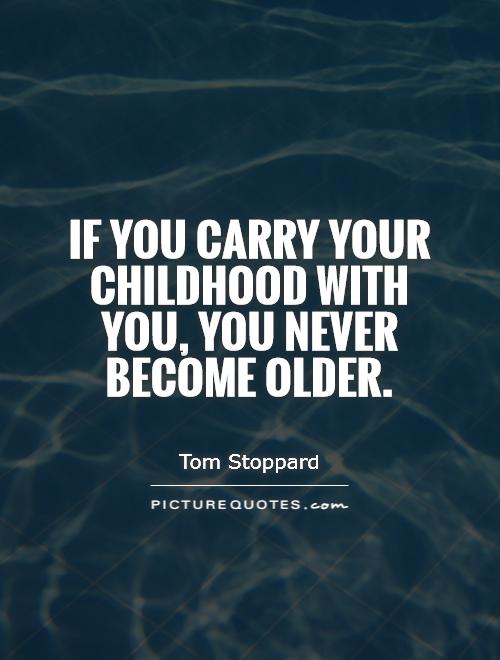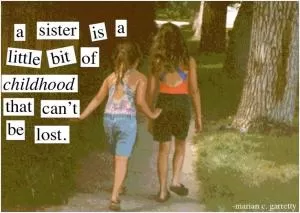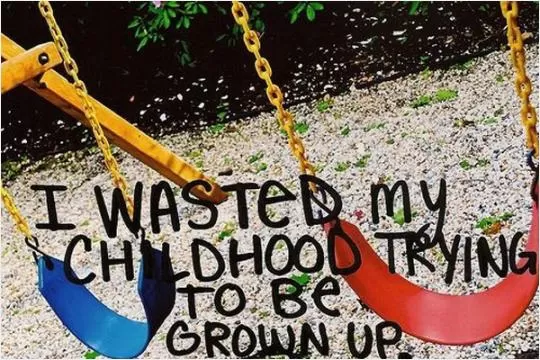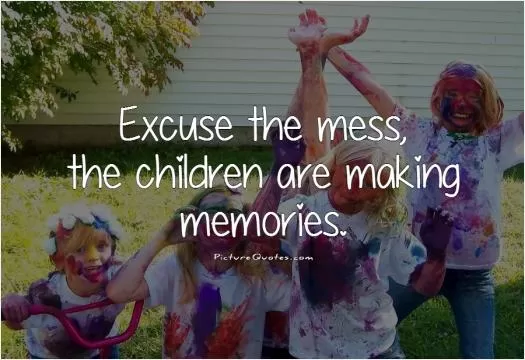If you carry your childhood with you, you never become older

Childhood QuotesChildhood Memories QuotesAging QuotesYour Child QuotesR B QuotesOur Childhood Quotes
If you carry your childhood with you, you never become older
Tom Stoppard, the renowned playwright and screenwriter, is known for his ability to capture the essence of human experience in his works. One of the recurring themes in his plays is the idea that our past experiences shape who we are and influence our present actions. This concept is beautifully encapsulated in the quote, "If you carry your childhood with you, you never become older."Stoppard's plays often explore the complexities of memory and the ways in which our pasts continue to inform our present selves. In works such as "Arcadia" and "The Real Thing," he delves into the intricacies of human relationships and the impact of past experiences on our perceptions of reality. Stoppard understands that our childhoods are formative years that shape our beliefs, values, and behaviors. By carrying our childhood with us, we are able to maintain a sense of wonder, curiosity, and innocence that keeps us young at heart.
Stoppard's characters often grapple with the challenges of growing older while trying to hold onto the vitality and spirit of their youth. In "Rosencrantz and Guildenstern Are Dead," the titular characters struggle with their existential crisis as they confront the inevitability of death. Despite their existential angst, they find solace in their shared memories and experiences, which serve as a source of comfort and connection in the face of uncertainty.
The quote, "If you carry your childhood with you, you never become older," speaks to the idea that our past selves are always present within us, influencing our thoughts, actions, and emotions. By embracing our childhood memories and experiences, we are able to maintain a sense of playfulness, creativity, and resilience that keeps us young at heart. Stoppard's works remind us that our pasts are not something to be forgotten or discarded, but rather cherished and celebrated as an integral part of who we are.












 Friendship Quotes
Friendship Quotes Love Quotes
Love Quotes Life Quotes
Life Quotes Funny Quotes
Funny Quotes Motivational Quotes
Motivational Quotes Inspirational Quotes
Inspirational Quotes